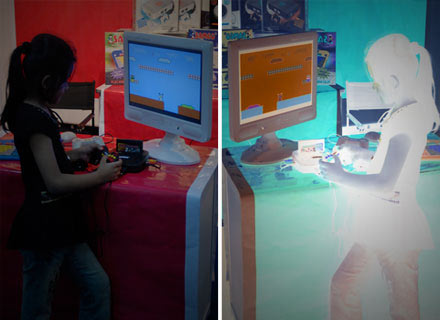Personality and Social Psychology Bulletin is a respected academic journal. A research article published in this year’s June issue of the journal concludes that playing some type of video games can make children kinder and more helpful towards other people.

The article features the results of 3 independent studies which were carried out in different countries with varied age groups and employed diverse scientific methods. All studies unanimously conclude that playing games with prosocial content can make children more helpful towards others after the game is over. Games in which characters help and support each other in non-violent ways are called prosocial games.
The report has been co-authored by a group of researchers from United States, Singapore, Malaysia and Japan. Douglas Gentile, Iowa State University psychologist and lead author commented, “Dozens of studies have documented a relationship between violent video games and aggressive behaviour but this is one of the first that has documented the positive effects of playing prosocial games.”
Brad Bushman, a University of Michigan co-author of the report explained, “These studies show the same kind of impact on three different age groups from three very different cultures. In addition, the studies use different analytic approaches – correlational, longitudinal and experimental. The resulting triangulation of evidence provides the strongest possible proof that the findings are both valid and generalizable.”
One study conducted with 727 secondary student participants in Singapore, with a mean age of 13, examined the relation between video game habits and prosocial behavior. They made a list of their favorite characters and rated the number of times the character helped or harmed others. They then answered questions about how likely they were to help people in need and how likely they were to react in an aggressive manner. Researchers found a strong link between playing prosocial games and helping others.
Close to 2000 Japanese children, aged between 10 and 16, were part of the second study which analyzed the long term association between prosocial behavior and video game habits. The participants were surveyed about their exposure to prosocial games and they noted how often they helped other people in the month before. They were surveyed again after a gap of 3 to 4 months. The researchers found a major relation between exposure to prosocial games and helpful behavior months later.
Bushman further stated, “This suggests there is an upward spiral of prosocial gaming and helpful behavior, in contrast to the downward spiral that occurs with violent video gaming and aggressive behavior.”
In the third study, 161 US college students were surveyed. They had a mean age of 19. The students were made to play either a prosocial, violent or neutral game and were later asked to assign puzzles to randomly selected partners. They could choose to assign puzzles which were easy, medium or hard to complete. The partners stood to win USD 10 if they were able to solve the puzzle. It was observed that the players who played prosocial games assigned easier puzzles to their partners whereas those who played violent games were more likely to assign the hardest of puzzles.
The essence of the entire study was best explained by Brad Bushman who is also a Research Professor at the UM Institute for Social Research (ISR). He explained that when the findings these studies are taken together, it is found that the type of the game content, and not amount of time spent playing, has a greater impact on the person’s overall personality.

